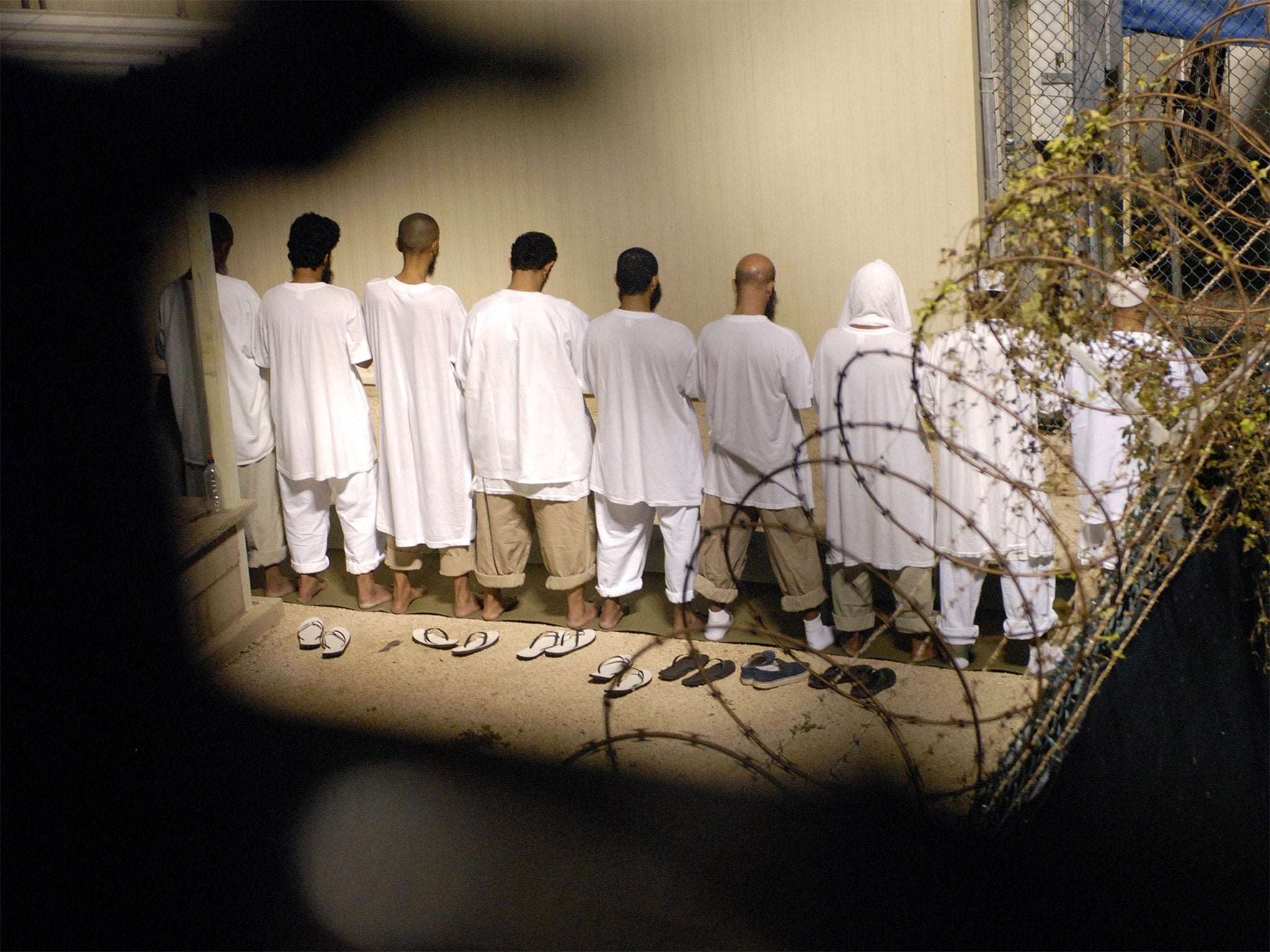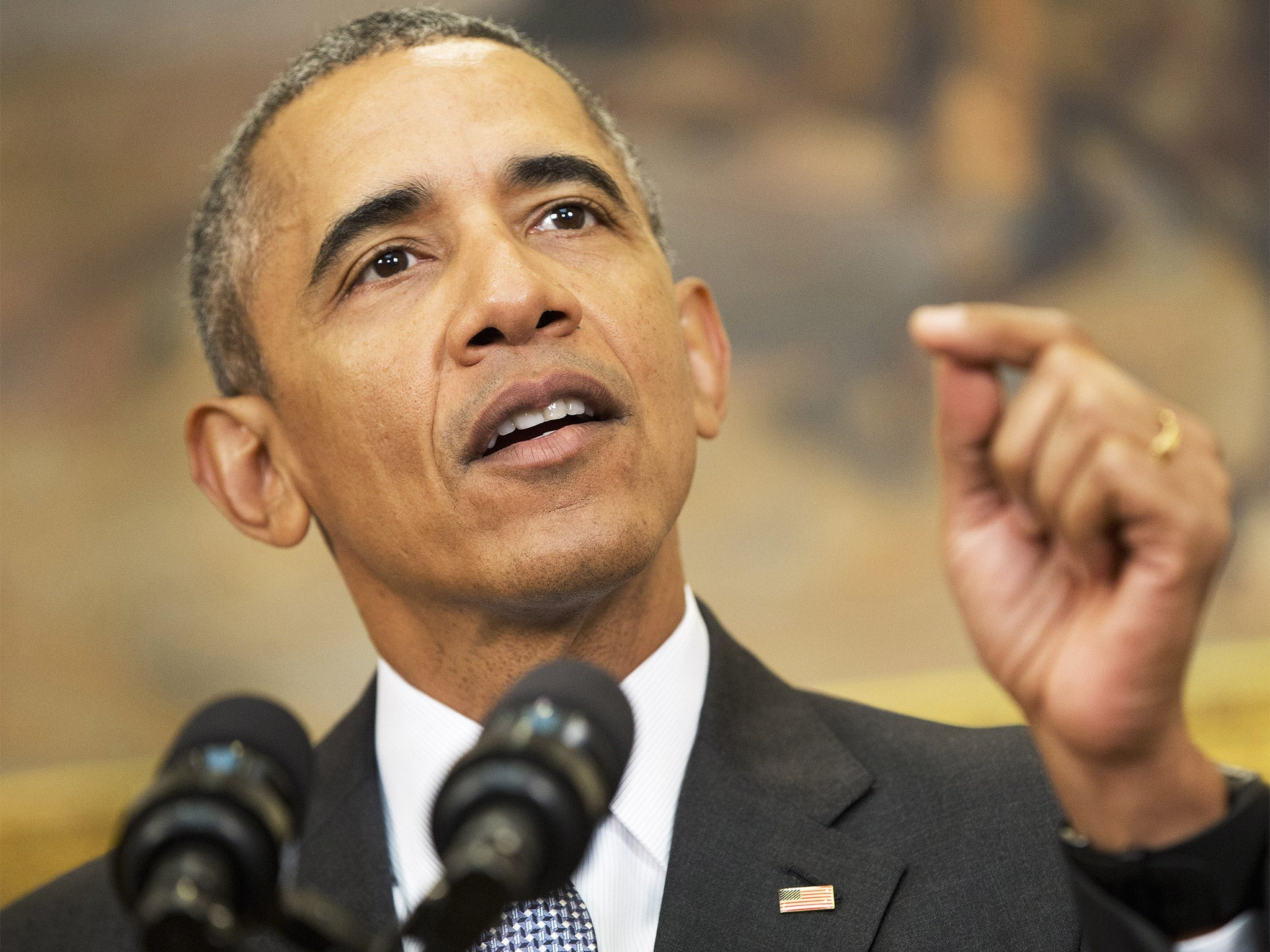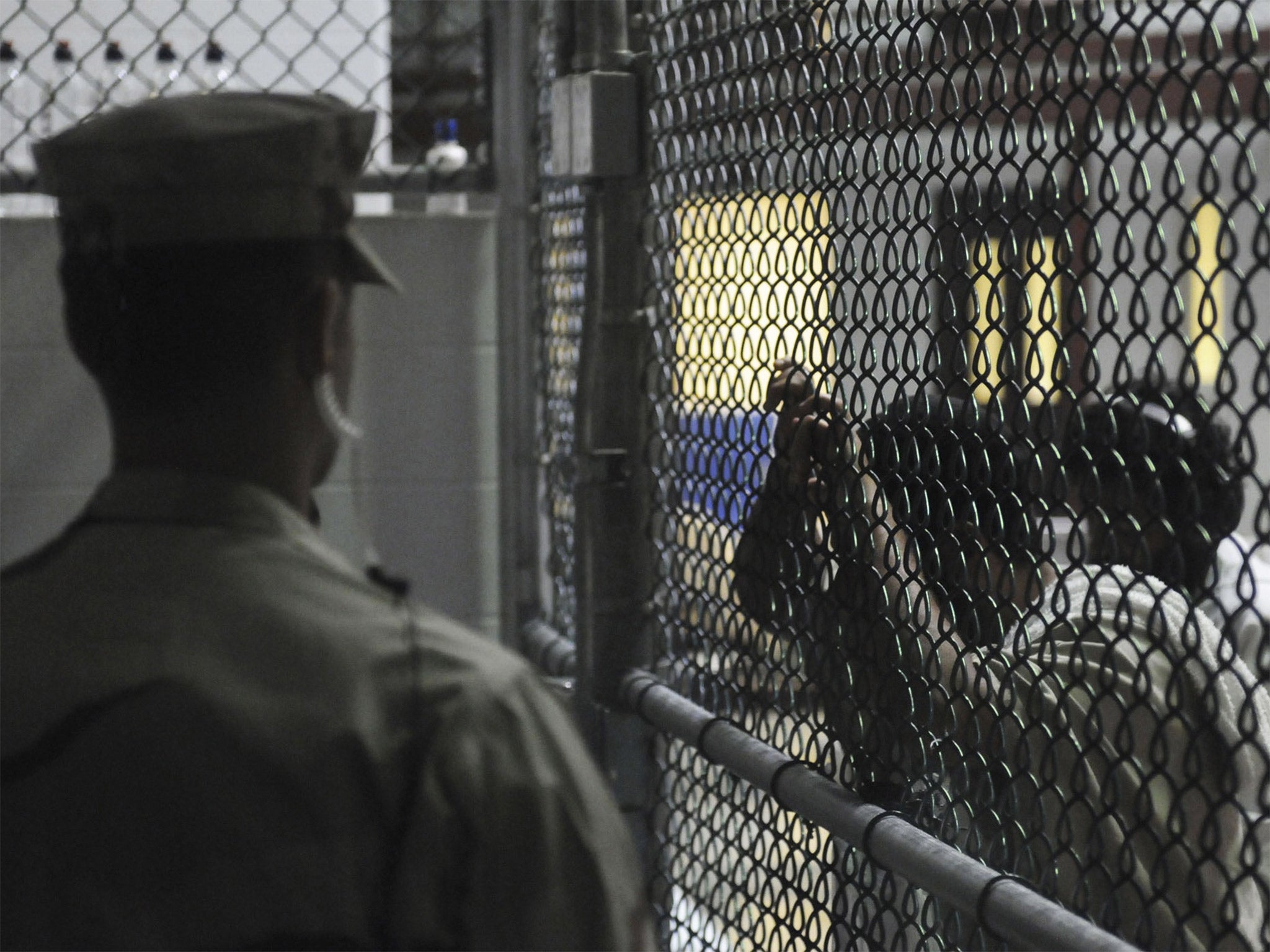Guantanamo Bay: President Obama attempts to 'close a chapter in our history' with bid to shut down prison
President proposes moving detainees from the Cuban facility to a yet-to-be-built maximum security prison on US soil

Your support helps us to tell the story
From reproductive rights to climate change to Big Tech, The Independent is on the ground when the story is developing. Whether it's investigating the financials of Elon Musk's pro-Trump PAC or producing our latest documentary, 'The A Word', which shines a light on the American women fighting for reproductive rights, we know how important it is to parse out the facts from the messaging.
At such a critical moment in US history, we need reporters on the ground. Your donation allows us to keep sending journalists to speak to both sides of the story.
The Independent is trusted by Americans across the entire political spectrum. And unlike many other quality news outlets, we choose not to lock Americans out of our reporting and analysis with paywalls. We believe quality journalism should be available to everyone, paid for by those who can afford it.
Your support makes all the difference.His reputation stained by the continued presence of the prison surrounded by steep hills in Guantanamo Bay, Barack Obama has unveiled proposals to finally close the infamous jail in Cuba and transport its inmates back to the mainland United States.
Mr Obama promised he would bring about the end of the darkest chapter of recent US history, but his hopes to close down the prison in Cuba, more than 15 years after it opened, rest with Congress and the “fair hearing” the President demands.
The continuing existence of Guantanamo Bay damages America’s standing in the world and serves as a recruiting tool for its enemies, Mr Obama said.
His new proposal envisages transferring as many as 60 of the 91 detainees still remaining at Guantanamo Bay to a new, yet-to-be-built maximum security prison on US soil. It is almost certain to be cold-shouldered by Republicans in Congress who have consistently opposed the facility’s closure.
Shutting the camp, which was built inside the US Naval base at Guantanamo Bay to accommodate so-called “enemy combatants” captured after the 9/11 attacks, was a key campaign pledge by Mr Obama when he was first elected. But Congress quickly manoeuvred to block him, passing a law in 2010 prohibiting the transfer of any detainees at the base for trial or detention inside the US.

If Mr Obama is to fulfil that promise in the 10 months he has left in office, he has either to persuade Congress to revoke that law or, failing that, to close down the prison by executive order without Congressional support. The latter may be a political leap too far, the former unlikely.
Mr Obama’s plan lacks some details, notably on the most sensitive issue of all – if there is to be a new facility inside the United States, where would it be and which community would be most affected? It goes no further than to identify 13 possible options, ranging from already existing military facilities for instance in Kansas and South Carolina to current maximum-security federal penitentiaries in Colorado.
“I am very clear-eyed about the hurdles to finally closing Guantanamo, the politics of this are tough. If it were easy, it would have happened years ago,” Mr Obama said, outlining the proposal drawn up for him by the Pentagon. However, he added: “I don’t want to pass this problem on the next president, whoever it is. Are we going to let this linger on for another 15 years?
“This is about closing a chapter in our history,” declared Mr Obama, with both the Vice-President, Joe Biden, and the Defence Secretary, Ashton Carter, standing by his side. “It reflects the lessons that we’ve learnt since 9/11, lessons that need to guide our nation going forward.”
The White House is trying to soften opposition with a financial case for closing the prison. While the cost of building an alternative to Guantanamo inside the US would run to about $475m (£339m), the report says, the annual savings in running costs would be about $180m.
“Not only is this the right thing to do for our security, it will also save money,” Mr Obama said, noting that the US had already tried and successfully convicted terror suspects inside the normal criminal court system including Robert Reid, the British “shoe bomber”, and the perpetrator of the Boston marathon bombing, Dzhokhar Tsarnaev.
But Mr Obama seemed mostly moved by what he believes is the damage done to the image of the US overseas both by the facility itself and the continuing process of trying detainees there by military commissions, which, he pointed out, has not delivered a single actual conviction in 15 years. “Keeping this facility open is contrary to our values. It undermines our standing in the world. It is viewed as a stain on our broader record of upholding the highest standards of rule of law,” Mr Obama argued, insisting that it also acted as a recruiting aid to foreign terror groups.
Reaction from Republicans on Capitol Hill was predictably frosty. “We’ll review President Obama’s plan,” Senate Majority Leader Mitch McConnell said. “But since it includes bringing dangerous terrorists to facilities in US communities, he should know that the bipartisan will of Congress has already been expressed against that proposal.”

“As far as I’m concerned, every last one of them can rot in hell, but as long as they don’t do that, they can rot in Guantanamo Bay,” Republican senator Tom Cotton, of Arkansas, said last year.
Alone among senior Republicans, Senator John McCain, chairman of the Senate Armed Forces Committee, has voiced support for closing the prison but he criticised the new plan as being too vague.
Renewal of political debate on the issue will also catapult it into the presidential race. It was embraced by Senator Bernie Sanders who said that he had consistently been calling for the prison’s closure. On the Republican side, Senator Marco Rubio vowed to voters in Nevada that he would keep Guantanamo open and no terror suspect would ever be tried in the US if he was president.
Amnesty International said it welcomed Mr Obama’s plan but noted that it suggested sending some detainees to the new prison without charge, an approach it called “reckless and ill-advised”.
Join our commenting forum
Join thought-provoking conversations, follow other Independent readers and see their replies
Comments